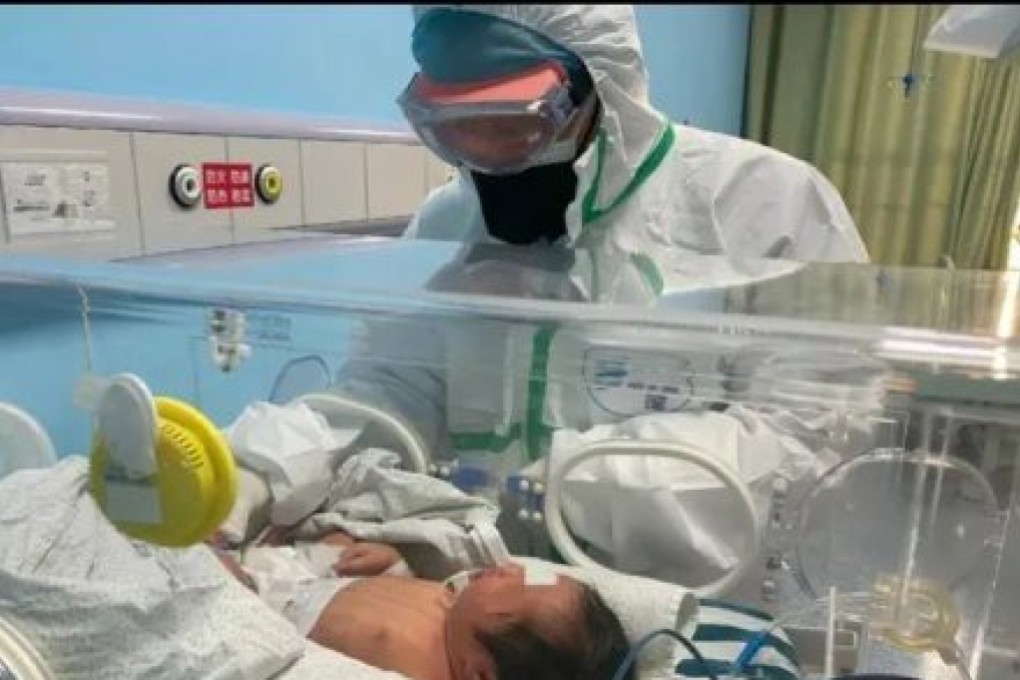Advertisement
Coronavirus: mother-baby transmission yet to be proven, obstetrician says
- Wuhan baby confirmed as being infected was tested 36 hours after birth meaning it had been in contact with other people, doctor says
- Tests carried on infant’s placenta and umbilical cord blood at time of delivery by caesarean section came back negative, she says
Reading Time:2 minutes
Why you can trust SCMP

A Chinese obstetrician has warned people against jumping to conclusions about the risk of pregnant women infected with the coronavirus passing it on to their unborn children, after a newborn in Wuhan, the city at the centre of the outbreak, tested positive for it.
“We cannot say right now that there is mother-baby vertical transmission because the number of cases is too few,” said Qiao Jie, a doctor from Peking University Third Hospital in Beijing who is now helping to combat the contagion in the central China city.
“But also we don’t dare say there is not one,” she said in an interview with state broadcaster CCTV.
Advertisement
The television report came after tests carried out on a baby 36 hours after its birth at Wuhan Children’s Hospital confirmed it was infected with the coronavirus.
The results sparked concerns that the pathogen was passing from mothers to their babies either in the womb or through their breast milk, a process known as vertical transmission.
Advertisement
Advertisement
Select Voice
Choose your listening speed
Get through articles 2x faster
1.25x
250 WPM
Slow
Average
Fast
1.25x